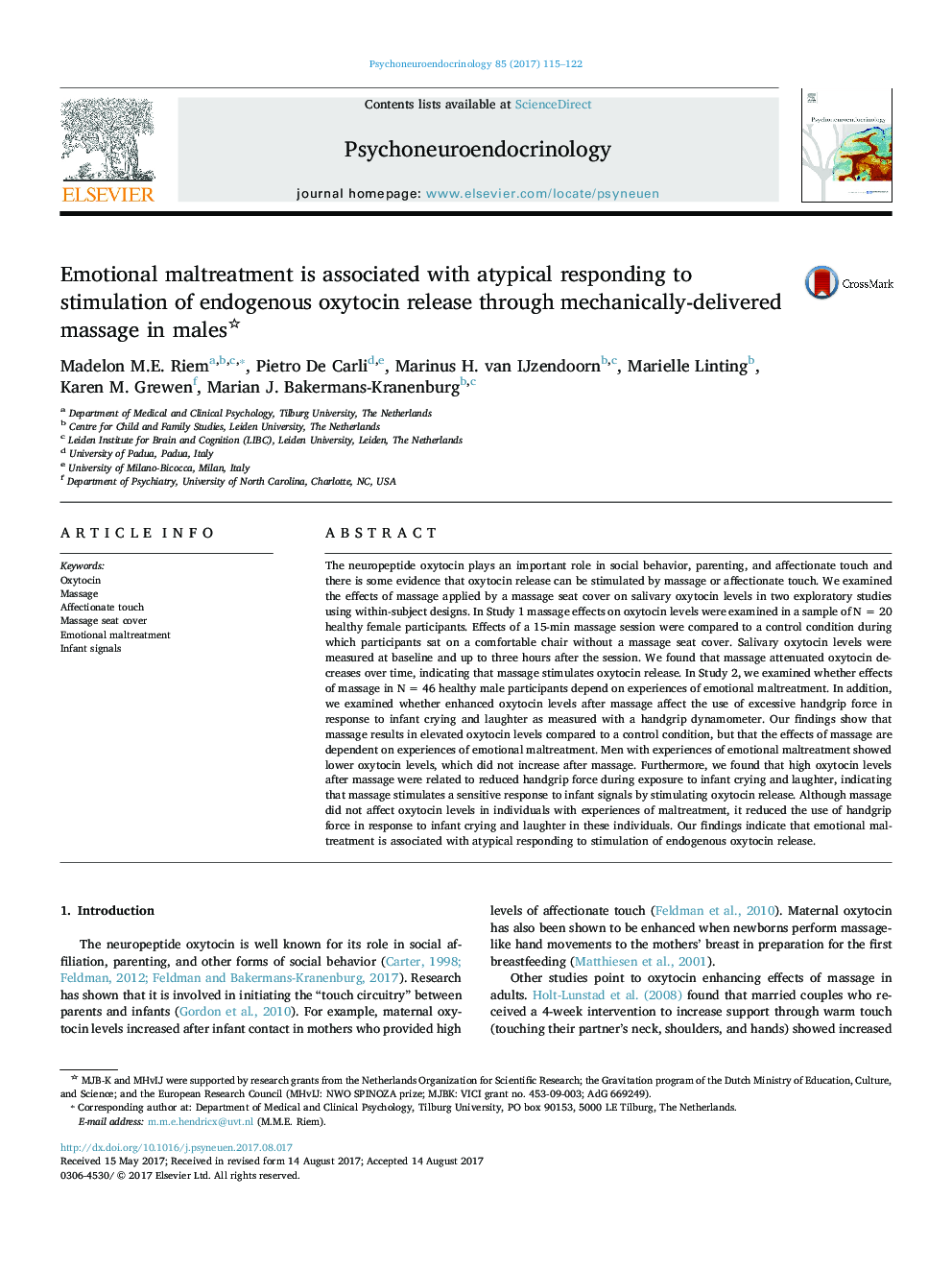| Article ID | Journal | Published Year | Pages | File Type |
|---|---|---|---|---|
| 4934176 | Psychoneuroendocrinology | 2017 | 8 Pages |
Abstract
The neuropeptide oxytocin plays an important role in social behavior, parenting, and affectionate touch and there is some evidence that oxytocin release can be stimulated by massage or affectionate touch. We examined the effects of massage applied by a massage seat cover on salivary oxytocin levels in two exploratory studies using within-subject designs. In Study 1 massage effects on oxytocin levels were examined in a sample of NÂ =Â 20 healthy female participants. Effects of a 15-min massage session were compared to a control condition during which participants sat on a comfortable chair without a massage seat cover. Salivary oxytocin levels were measured at baseline and up to three hours after the session. We found that massage attenuated oxytocin decreases over time, indicating that massage stimulates oxytocin release. In Study 2, we examined whether effects of massage in NÂ =Â 46 healthy male participants depend on experiences of emotional maltreatment. In addition, we examined whether enhanced oxytocin levels after massage affect the use of excessive handgrip force in response to infant crying and laughter as measured with a handgrip dynamometer. Our findings show that massage results in elevated oxytocin levels compared to a control condition, but that the effects of massage are dependent on experiences of emotional maltreatment. Men with experiences of emotional maltreatment showed lower oxytocin levels, which did not increase after massage. Furthermore, we found that high oxytocin levels after massage were related to reduced handgrip force during exposure to infant crying and laughter, indicating that massage stimulates a sensitive response to infant signals by stimulating oxytocin release. Although massage did not affect oxytocin levels in individuals with experiences of maltreatment, it reduced the use of handgrip force in response to infant crying and laughter in these individuals. Our findings indicate that emotional maltreatment is associated with atypical responding to stimulation of endogenous oxytocin release.
Related Topics
Life Sciences
Biochemistry, Genetics and Molecular Biology
Endocrinology
Authors
Madelon M.E. Riem, Pietro De Carli, Marinus H. van IJzendoorn, Marielle Linting, Karen M. Grewen, Marian J. Bakermans-Kranenburg,
